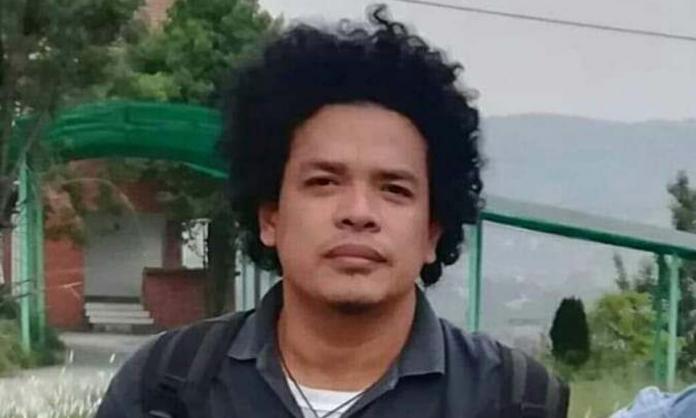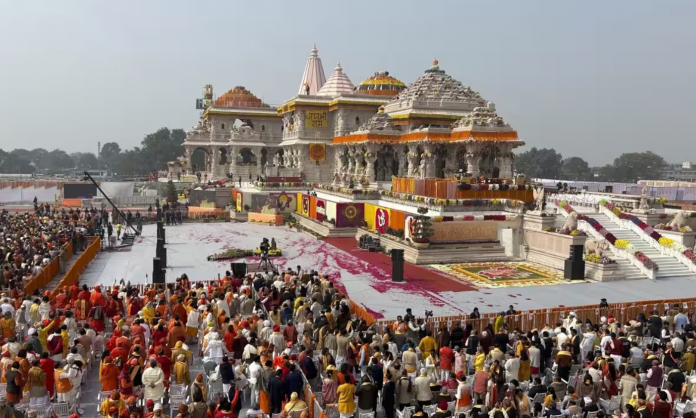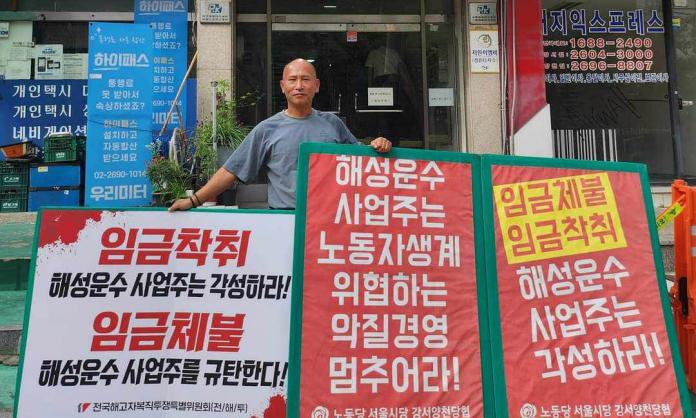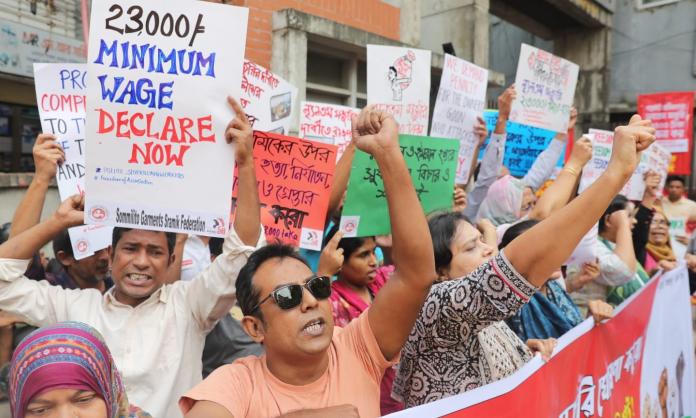Surya Anta Ginting, national spokesperson for the pro-independence Indonesian People’s Front for West Papua – who with five Papuan activists is being held in Jakarta’s notorious Salemba prison awaiting trial on treason charges – is reportedly seriously ill.
Anta’s wife Lucia Fransisca told reporters that she visited Anta on 29 November and found that he and the five Papuan detainees were not receiving proper medical treatment. She said that although a doctor visited, no physical examination was conducted, as is usually the case with other prisoners. She said that Anta is weak, nauseous, unable to stand, has a cold sweat and had been suffering a high fever all day. Fransisca said that the Papuan prisoners are being held under “inhuman conditions”, noting that Salemba prison is severely overcrowded and lacks clean drinking water and decent food. They six are reportedly being held along with more than 600 others, who share one toilet.
Anta, a member of the leftist People’s Liberation Party who earned the government’s ire in 2016 for publicly apologising for Indonesian repression against indigenous Papuans, is the first non-Papuan Indonesian to be charged with treason for supporting West Papuan independence. He is one of eight activists arrested following a rally on 28 August in front of the State Palace in central Jakarta, during which the banned West Papuan Morning Star flag was flown.
Police arrested Papuan students Charles Kossay and Dano Tabuni on 30 August. The following day, Ambrosius Mulait and Issay Wenda were detained for protesting the arrest of Kossay and Tabuni outside the Jakarta police headquarters. Later that evening, police arrested three women activists, releasing two but detaining theology student Ariana Lokbere. Anta was picked up that evening while eating at the Plaza Indonesia mall.
The arrests took place amid a wave of sometimes violent rallies and riots in Papua and West Papua provinces in August and September, during which thousands of people protested racism against Papuans and called for independence. The protests erupted after a video circulated of right wing militia and military personnel racially abusing indigenous Papuan students outside their dormitory in the East Java city of Surabaya on 17 August. In addition to several rallies in Jakarta, Papuans demonstrated in at least 30 cities across the country. Rioting Papuans burned down the local parliament building in Manokwari, as well as prisons in Sorong, West Papua province, and Jayapura, the capital of Papua province.
Between 9 and 17 September, police arrested eight activists in Jayapura, including student leaders Alexander Gobay and Ferry Gombo, and six activists from the pro-independence West Papua National Committee: Buchtar Tabuni, Steven Itlay, Assa Asso, Agus Kossay, Hengki Hilapok and Irwanus Uropmobin. In Manokwari, West Papua, police arrested four activists, including Sayang Mandabayan, who was detained on 2 September for bringing 1,500 small Morning Star flags through Manokwari airport. Three student activists were also arrested on 19 September for making Morning Star flags: Erik Aliknoe, Pende Mirin and Yunus Aliknoe. In Sorong, West Papua police detained four student activists – Herman Sabo Yosep Laurensius Syufi, Manase Baho, Eteus Paulus and Miwak Karet – for making and distributing Morning Star flags.
Like those in Jakarta, most awaiting trial have been charged with treason and face a maximum penalty of 20 years in jail, which can be doubled for people convicted for mobilising others to commit treason. The government has also accused Veronica Koman – an Indonesian human rights lawyer who tweeted videos and photographs of the Surabaya incident and subsequent unrest – of “inciting” the riots. Koman is residing in Australia, and police are seeking Australian government assistance to force her to return to face trial.
This is not the first time Anta has been afforded “special” treatment. Following their arrests, the Jakarta six were held at the Mobile Brigade Headquarters detention centre in Depok while police completed the investigation dossiers. Legal advocates who visited Anta told reporters that he was held in an isolation cell with no windows and only one small air vent and was bombarded with patriotic music 24 hours a day. This led to Anta developing an inner ear infection that was treated only after lawyers publicly protested his treatment.
In October, lawyers from the Papua Advocacy Team representing the six challenged the legality of the arrests and raids. They argued that they were carried out without warrants, were not witnessed by local community authorities and should have been proceeded by a summons for questioning – all of which are required under Indonesia’s Criminal Procedural Code. Police failed to appear at the first pretrial hearing on 11 November, resulting in a two-week postponement. But a week later, Anta and the other five suspects were handed to prosecutors to await trail in Cipinang prison. Lawyers accused the police of trying to avoid the pretrial process and using the delay to rush through the investigation.
When police eventually turned up at a hearing, the court heard that warrants were presented the day after the accused were detained, local authorities were not present during the arrests, and one witness related that, during a raid on a Papuan student dormitory, police made racist slurs, calling Papuans “orangutans”, stole personal belongings and pointed a gun at one of the residents. The sole judge hearing the case will hand down a verdict on 10 December.
Human Rights Watch has called on Indonesian authorities to drop the treason charges and release at least 22 activists detained since August for peaceful acts of free expression concerning Papua. The group said that these abusive prosecutions show backtracking by president Joko Widodo’s government in dealing with human rights in West Papua and Papua provinces. But since then, police in Jayapura have charged 20 more Papuan activists with treason. The 20 are part of a group of 34 arrested two days earlier for planning to commemorate the founding anniversary of the Free Papua Movement, which is held on 1 December each year. The latest batch of indictments brings the number of people now awaiting trial for treason to at least 42.
————
For the latest news and information on Indonesia and West Papua, visit the Indoleft website at www.indoleft.org or the Asia Pacific Solidarity Network’s Indonesia and East Timor News Digest at www.asia-pacific-solidarity.net.










